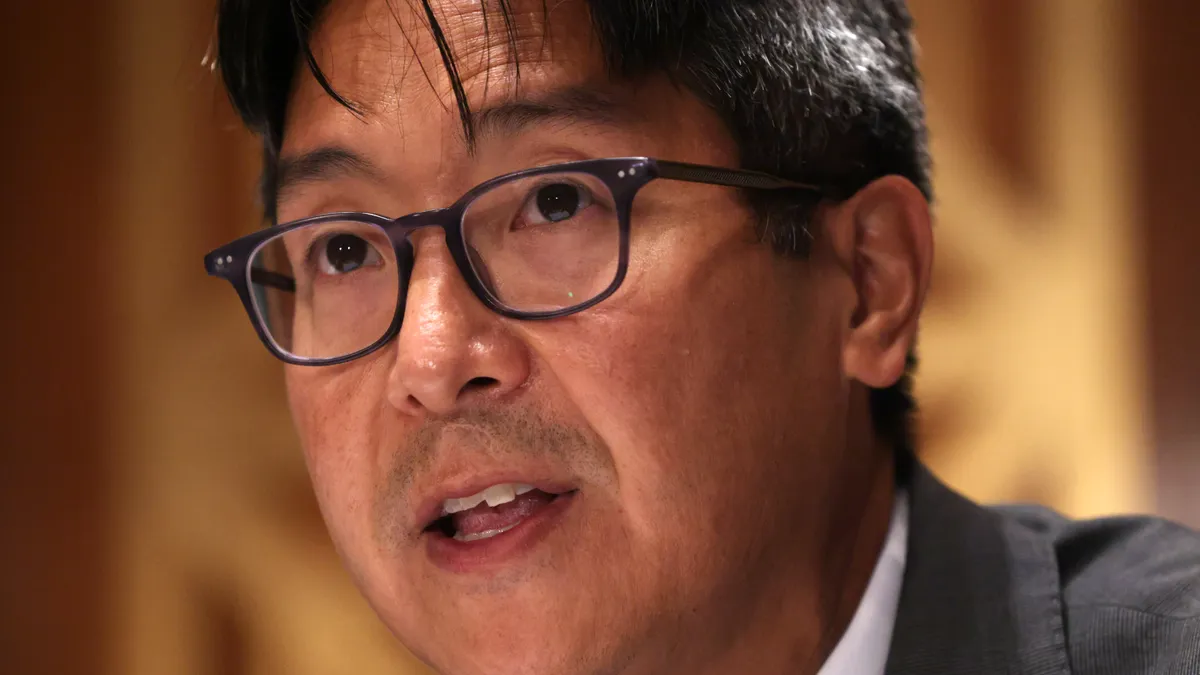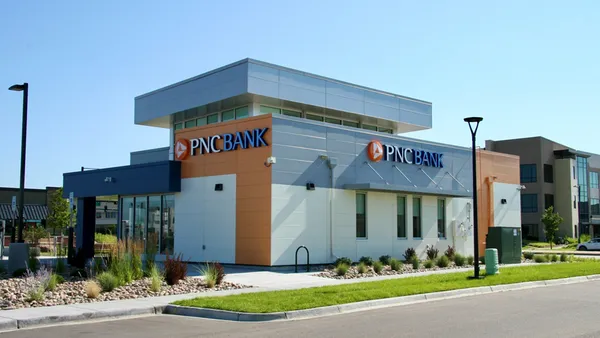The Office of the Comptroller of the Currency is seeking comment on a proposed annual survey to understand, measure and track the public’s trust in banking and bank supervision, the agency announced Thursday.
“There is a saying that what gets measured gets done,” the OCC’s acting chief, Michael Hsu, said Thursday at an event. “By conducting an annual survey on trust in banking, my hope is that banks, regulators and community organizations will be better able to hold each other accountable.”
Hsu defined trust as “the willingness of a party to be vulnerable to the actions of another.” Depositing one’s hard-earned money in a bank is an excellent example of trust that one can show, he said.
Intertwined in trust is power, Hsu said — namely, the trusted party has power over the trustor.
“Through this lens, it is easy to see why fairness and justice are so critical to trust, and why trust is so hard to earn and so easy to lose,” he said.
People’s trust in banks can warrant a “virtuous cycle” between the financial institutions and the communities they serve. If banks can attract and retain the deposits, they would be able to meet the credit needs of their communities and maintain lending and profitability through economic cycles. Strong banks can support stable economies and the other way round, Hsu noted.
“Customers who trust banks are more likely to use the regulated banking system rather than stashing their cash under their mattresses, relying on predatory lenders, or turning to alternatives like crypto,” he said.
Data gaps
The OCC also plans to design and release an annual survey meant to establish an extensive set of data points and measurements that capture the trends and drivers of consumers’ trust in banking, Hsu said. This would help in policymaking and supervision and help to formulate bank products and services, Hsu added.
“Bank regulatory agencies, central banks and academics have tended to focus on specific segments of the population or have covered trust in banks tangentially as part of broader survey efforts,” he said.
The OCC submitted a request for information to the Federal Register on possible scope of the survey and ways to assess and analyze the survey results over time. The comment period has been extended through the end of August.
In his speech, Hsu highlighted fellow regulators’ surveys as valuable tools. The Federal Deposit Insurance Corp., fo example, issues its survey of unbanked and underbanked households. The Consumer Financial Protection Bureau publishes a survey on making ends meet. And the Federal Reserve has a Survey of Consumer Finances.
“Research suggests that the aggregate levels of deposits at banks that endure runs do not return to pre-run levels,” Hsu said. “In addition, banks that have material fairness and compliance deficiencies may face stiff civil money penalties, restrictions on growth, and sustained reputational damage, limiting their capacities to make loans and otherwise serve their customers and the economy.”
Hsu also stressed strengthening and modernizing the Community Reinvestment Act. He highlighted a 2022 Urban Institute study that found CRA-eligible mortgage and small lending banks unfairly lend in their CRA areas, leaving the needs of low- and moderate-income areas unmet.
“We must continue to encourage banks to do a better job of offering products and services and serving all communities fairly, especially LMI communities,” he said.
Reforming overdrafts is also essential to maintain trust in banking, he said. Hsu asked institutions to review guidance on overdraft protection programs issued in April, which “highlights certain practices that may present heightened risk of being unfair, deceptive, or unsafe and unsound, such as assume positive/settle negative and representment.”
The guidance also talks about practices the OCC outlines to help banks manage risks and limit consumer harm by encouraging practices that build the public’s trust in banks.
“The OCC’s mission is to ensure that the federal banking system is safe, sound, and fair,” Hsu said. “A banking system that is financially safe and sound but not fair and inclusive is a system at odds with trust, growth, and democracy.”














